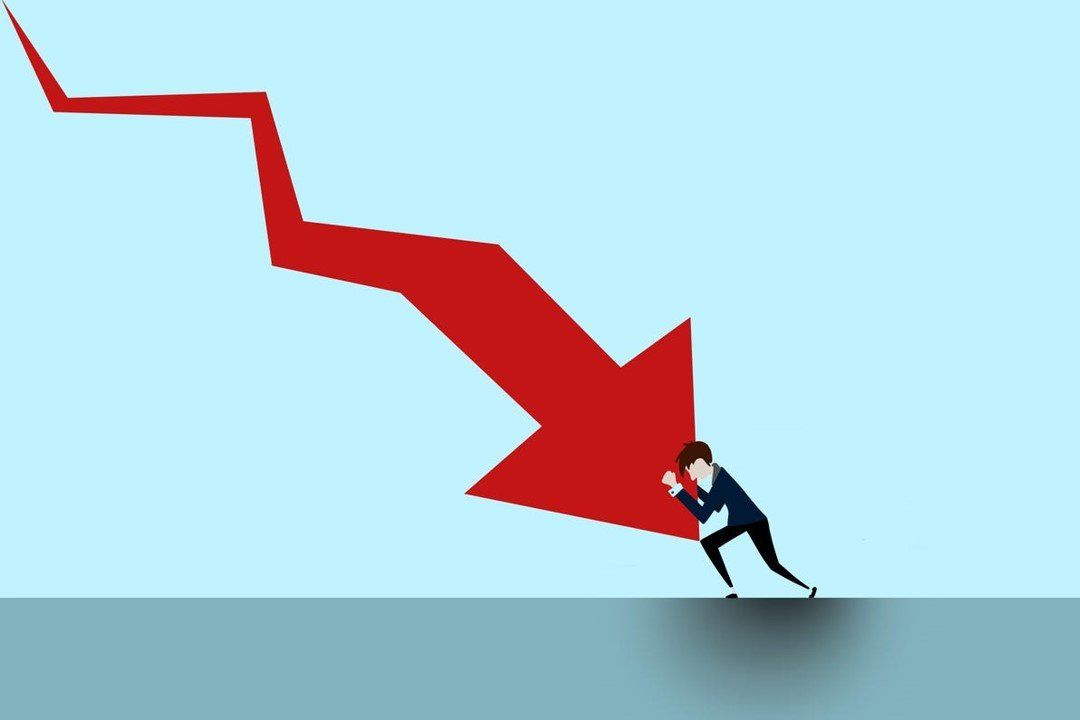***NEED FURTHER SUPPORT IN ANYTHING BUSINESS GROWTH***
Book a Virtual Chat. No Pressure, No Obligation - just useable information that will certainly help you and your business - Click Here
There's no such thing as a sure thing in the world of business.
That's why it's important to be prepared for the worst-case scenario—like an economic downturn—so that you can still keep yourself afloat, even when times get tough.
I've put together 5 steps to help you prepare for a downturn in the economy:
To avoid being impacted by the economy and to prepare for a future of recovery, it’s important to evaluate your operating expenses and cut unnecessary cost. Identify areas where you can reduce your spending without affecting customer service or quality of products and services.
Start analysing the most important things that you need to do in order to keep your business running. You might have already cut back on some of these things, but there may be others that need attention.
Look at all of your expenses, even if they seem small or insignificant. If you can find ways to reduce costs, then do so immediately — especially if you can reduce them by 10%, 20% or more.
Look at overhead costs such as rent, supplies and utilities. If you can cut back on these expenses now, it will give you more flexibility to ride out any downturns. Look at any discretionary expenses such as entertainment or travel that can be eliminated temporarily until business picks up again.
It’s also a good idea to review your contracts with vendors and suppliers, especially when the economy appears to be slowing down. Make sure you have options in case they try to cancel or change their terms or try to raise prices.
Remember Cash-Flow is King!
If you're living pay-check to pay-check, then an economic downturn could mean that you'll have to make cuts in your personal budget as well as your business one. However, if you set aside money for emergencies and unexpected expenses, then you won't have to worry about cutting back on things like food or clothing for yourself and your family.
If you're not sure what your personal expenses are, it may be time to take a hard look at how much money comes out of your pocket every month. This will help you determine what changes need to be made to your personal budget if demand goes down.
Create a detailed expense report. You'll want to know exactly where all of your costs go so that when times get tough, you can make adjustments quickly and easily without sacrificing too much and putting additional pressure on yourself and your family.
Devising an action plan ahead of time can help you respond quickly to changing circumstances rather than wasting time trying to decide on priorities.
Things to think about: Do you need all your subscription Services? Can you cut down on travel expense, fuel, etc? Do you need 2 cars? If you have credit card debt, can you transfer to another and make use of an interest free period? Can you freeze your credit card spend? Look at meal planning?
Get creative!
Plan your resources carefully and make sure that they are allocated properly in getting the right things done. You need to be prepared for any eventuality and make sure that everything runs smoothly even under pressure.
Shift your planning from a long-term perspective to a short term one. The ground shifts quite quickly in a recession and projects and plans that take a long time to complete are often the great cause of waste. Instead, try planning things out in 3/6 months spurts, so that if there is any change in course due to an economic slowdown or other factors, you’ll be agile enough to react accordingly. Look at your business model and see how flexible it is. Do you have the ability to change direction quickly?
Also make sure that your employees know what the company’s priorities are during these difficult times so they can adjust their work accordingly without too much disruption or confusion.
The key is to be prepared with a plan that will allow you to react when times get tough.
Economic recessions can be devastating to small businesses, but they can also be the best opportunity for growth and expansion. You are not a victim of the downturn!
There will be opportunities, but you need to see them, think about them, and act on them.
If you can, keep your cash reserves high so you can take advantage of them quickly. Be aware that fear and uncertainty can prevent you from taking advantage of these opportunities, but it’s important to keep moving forward in spite of obstacles. In such circumstances, it is imperative to keep your mindset sharp.
Be ready to change your product or business direction when necessary. Be prepared to pivot in a new direction. Make Sure You Have a Plan A B, C, D, E...!
Maslow’s theory is that people are motivated to satisfy their basic Physiological needs (food), Safety (shelter), before moving on to higher order needs, Belongingness/Love, Esteem and Self-Actualisation. If a person doesn’t have his or her lower order needs met, they cannot move up to higher order needs.
When times are good, we tend to focus on what people want — but when money gets tight and priorities change, we need to think about what people really need.
Think about how you can reposition your offers, so they address basic needs first (physiological, safety), if not that level, then move on to their social needs (love/belonging). You want to think about how you can help people feel loved or valued in some way. This might include giving them access to a community of like-minded individuals who share similar values or interests.
You can’t change the fact that the economy is in bad shape, but you can prepare your business to weather any storm by repositioning your offers to hit the lower parts of Maslow’s Hierarchy of Needs.

***NEED FURTHER SUPPORT IN ANYTHING BUSINESS GROWTH***
Book a Virtual Chat. No Pressure, No Obligation - just useable information that will certainly help you and your business - Click Here
Pay It Forward!
